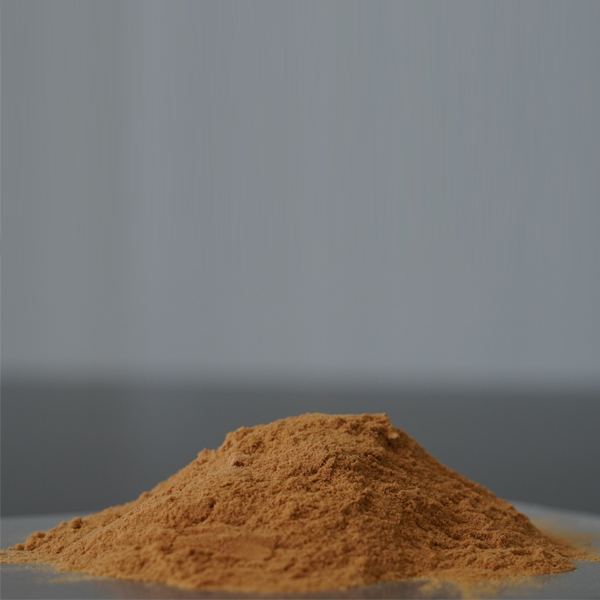
News
Dez . 26, 2024 01:08 Back to list
copper chelation
The Importance of Copper Chelation Understanding Its Role in Health and Disease Management
Copper is an essential trace element that plays a vital role in various biological processes, including iron metabolism, the formation of connective tissues, and the functioning of the nervous system. While copper is crucial for health, an excess of this metal can lead to toxicity and contribute to a range of health issues. Copper chelation, the process of binding copper ions to specific agents for excretion, has emerged as a significant therapeutic strategy, especially for conditions linked with copper overload.
Understanding Copper Overload
Copper overload can occur due to genetic disorders, such as Wilson’s disease, where the body is unable to eliminate excess copper. This accumulation can lead to severe hepatic, neurological, and psychiatric symptoms. Other conditions, like certain types of liver disease, can also elevate copper levels. If left untreated, copper toxicity can result in organ damage and impaired function, making it imperative to manage copper levels effectively.
Role of Copper Chelators
Copper chelation therapy utilizes chelating agents—compounds that bind to copper ions and facilitate their excretion. Two of the most commonly used chelators include penicillamine and trientine. These agents work by forming stable complexes with copper, which the body can then eliminate through urine. The use of chelation therapy has proven effective in reducing copper levels in patients suffering from Wilson's disease and in those with copper toxicity due to other health conditions.
Mechanism of Chelation
The mechanism of chelation involves the formation of coordinate bonds between the chelator and the copper ion. When a chelating agent binds to the copper, it transforms the metal into a water-soluble complex, which can be easily excreted by the kidneys. This process not only helps in detoxifying the body from excess copper but also prevents further accumulation, allowing for the normalization of copper levels.
Benefits of Copper Chelation
copper chelation

1. Reduction of Symptoms Hypercopperemia is commonly associated with neurological and psychiatric symptoms, including mood swings, cognitive impairment, and even psychosis. Copper chelation has been shown to alleviate these symptoms in many patients, significantly improving their quality of life.
2. Preventing Organ Damage By lowering excessive copper levels, chelation therapy helps prevent damage to vital organs such as the liver and kidneys. Continuous copper accumulation can lead to cirrhosis and renal failure. Effective chelation therapy significantly reduces these risks.
3. Enhancing Overall Health In addition to managing specific health conditions, chelation therapy can also promote overall health and well-being. Patients often report increased energy levels and improved mental clarity post-treatment.
Challenges and Considerations
Despite its benefits, copper chelation is not without challenges. Possible side effects of chelators include allergic reactions, skin rashes, and gastrointestinal issues. Additionally, prolonged use can lead to zinc deficiency as chelation can also bind essential metals. Therefore, healthcare providers must monitor patients closely and may recommend supplemental zinc during treatment.
Moreover, the selection of the appropriate chelating agent depends on the individual patient’s condition and tolerance. While penicillamine is one of the first-line treatments for Wilson’s disease, it may not be suitable for all patients due to its side effects. Trientine, a newer chelating agent, has been developed to address some of these issues, offering an alternative with fewer side effects.
Conclusion
Copper chelation represents a crucial avenue for treating copper-related disorders, particularly in the face of rising awareness about the health impacts of metal toxicity. As research progresses, the development of more effective and safer chelating agents will continue to enhance treatment outcomes. Patients with conditions associated with copper overload should consult healthcare professionals for proper diagnosis and management, ensuring that they achieve a balance that supports their health and well-being. Through continued advancements in chelation therapy, we can look forward to more effective strategies in managing copper-related health issues and improving patients' lives.
-
OEM Chelating Agent Preservative Supplier & Manufacturer High-Quality Customized Solutions
NewsJul.08,2025
-
OEM Potassium Chelating Agent Manufacturer - Custom Potassium Oxalate & Citrate Solutions
NewsJul.08,2025
-
OEM Pentasodium DTPA Chelating Agent Supplier & Manufacturer High Purity & Cost-Effective Solutions
NewsJul.08,2025
-
High-Efficiency Chelated Trace Elements Fertilizer Bulk Supplier & Manufacturer Quotes
NewsJul.07,2025
-
High Quality K Formation for a Chelating Agent – Reliable Manufacturer & Supplier
NewsJul.07,2025
-
Best Chelated Iron Supplement for Plants Reliable Chelated Iron Fertilizer Supplier & Price
NewsJul.06,2025
